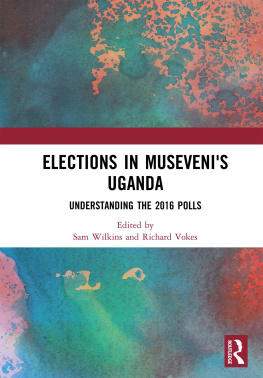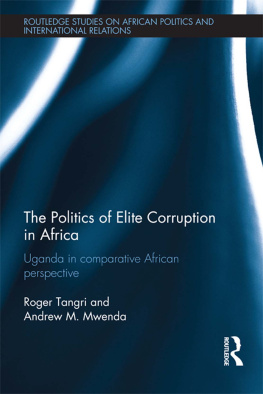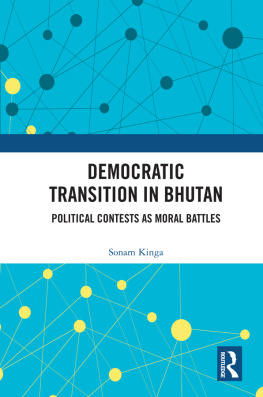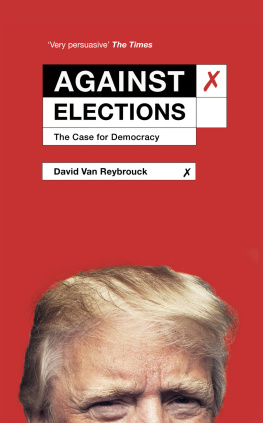Elections in Musevenis Uganda
Ugandas 2016 elections, which returned thirty-year incumbent President Yoweri Museveni and his National Resistance Movement (NRM) in yet another landslide, took place in an atmosphere of patronage, coercion and electoral irregularities. But is this diagnosis sufficient to understand the processes of voting and regime maintenance in Uganda today? Based on a series of case studies from across Uganda, this book provides a more nuanced and complex picture of what the Museveni regime is, and how it keeps winning elections. Whilst not denying that various electoral malpractices are systemic to the regimes survival, the authors find that these cannot be extricated from Ugandas history, its wider social context, and the local political cultures in which the NRM has become so embedded. In so doing, the authors who include anthropologists, development specialists, historians, geographers, and political-scientists develop new ways of thinking about the meaning of voting and elections in non-democratic Uganda, and elsewhere.
This book was originally published as a special issue of the Journal of Eastern African Studies.
Sam Wilkins is a DPhil student at the Department of Politics and International Relations at the University of Oxford, UK.
Richard Vokes is a Senior Lecturer in Anthropology and Development Studies at the University of Adelaide, Australia.
Elections in Musevenis Uganda
Understanding the 2016 Polls
Edited by
Sam Wilkins and Richard Vokes
First published 2018
by Routledge
2 Park Square, Milton Park, Abingdon, Oxon, OX14 4RN, UK
and by Routledge
711 Third Avenue, New York, NY 10017, USA
Routledge is an imprint of the Taylor & Francis Group, an informa business
Introduction, Chapters 16, 811 & Afterword 2018 Taylor & Francis.
Chapter 7 2018 Rebecca Tapscott. Originally published as Open Access.
With the exception of Chapter 7, no part of this book may be reprinted or reproduced or utilised in any form or by any electronic, mechanical, or other means, now known or hereafter invented, including photocopying and recording, or in any information storage or retrieval system, without permission in writing from the publishers. For details on the rights for Chapter 7, please see the chapters Open Access footnote.
Trademark notice: Product or corporate names may be trademarks or registered trademarks, and are used only for identification and explanation without intent to infringe.
British Library Cataloguing in Publication Data
A catalogue record for this book is available from the British Library
ISBN 13: 978-1-138-30012-5
Typeset in Minion
by RefineCatch Limited, Bungay, Suffolk
Publishers Note
The publisher accepts responsibility for any inconsistencies that may have arisen during the conversion of this book from journal articles to book chapters, namely the possible inclusion of journal terminology.
Disclaimer
Every effort has been made to contact copyright holders for their permission to reprint material in this book. The publishers would be grateful to hear from any copyright holder who is not here acknowledged and will undertake to rectify any errors or omissions in future editions of this book.
Contents
Citation Information
The chapters in this book were originally published in the Journal of Eastern African Studies, volume 10, issue 4 (November 2016). When citing this material, please use the original page numbering for each article, as follows:
Introduction
Party, patronage and coercion in the NRMs 2016 re-election in Uganda: imposed or embedded?
Richard Vokes and Sam Wilkins
Journal of Eastern African Studies, volume 10, issue 4 (November 2016), pp. 581300
Chapter 1
The master of institutional multiplicity? The shifting politics of regime survival, state-building and democratisation in Musevenis Uganda
Frederick Golooba-Mutebi and Sam Hickey
Journal of Eastern African Studies, volume 10, issue 4 (November 2016), pp. 601618
Chapter 2
From the electoral battleground to the parliamentary arena: understanding intra-elite bargaining in Ugandas National Resistance Movement
Michaela Collord
Journal of Eastern African Studies, volume 10, issue 4 (November 2016), pp. 639659
Chapter 3
Managing elite defection in Musevenis Uganda: the 2016 elections in perspective
Moses Khisa
Journal of Eastern African Studies, volume 10, issue 4 (November 2016), pp. 729748
Chapter 4
Challenging dominance: the opposition, the coalition and the 2016 election in Uganda
Nicole Beardsworth
Journal of Eastern African Studies, volume 10, issue 4 (November 2016), pp. 749768
Chapter 5
Who pays for pakalast ? The NRMs peripheral patronage in rural Uganda
Sam Wilkins
Journal of Eastern African Studies, volume 10, issue 4 (November 2016), pp. 619638
Chapter 6
Primaries, patronage, and political personalities in South-western Uganda
Richard Vokes
Journal of Eastern African Studies, volume 10, issue 4 (November 2016), pp. 660676
Chapter 7
Where the wild things are not: crime preventers and the 2016 Ugandan elections
Rebecca Tapscott
Journal of Eastern African Studies, volume 10, issue 4 (November 2016), pp. 693712
Chapter 8
Partisan defections in contemporary Uganda: the micro-dynamics of hegemonic party-building
Sandrine Perrot
Journal of Eastern African Studies, volume 10, issue 4 (November 2016), pp. 713728
Chapter 9
A history of the heritage economy in Yoweri Musevenis Uganda
Derek R. Peterson
Journal of Eastern African Studies, volume 10, issue 4 (November 2016), pp. 789806
Chapter 10
Religious (de)politicisation in Ugandas 2016 elections
Henni Alava and Jimmy Spire Ssentongo
Journal of Eastern African Studies, volume 10, issue 4 (November 2016), pp. 677692
Chapter 11
Land belongs to the people of Uganda: politicians use of land issues in the 2016 election campaigns
Lotte Meinert and Anne Mette Kjr
Journal of Eastern African Studies, volume 10, issue 4 (November 2016), pp. 769788
For any permission-related enquiries please visit:
http://www.tandfonline.com/page/help/permissions
Notes on Contributors
Henni Alava is a PhD Researcher in Development Studies at the University of Helsinki, Finland.
Nicole Beardsworth is a PhD student at the Politics and International Studies Department, University of Warwick, UK.
Michaela Collord is a PhD student at the Department of Politics and International Relations, University of Oxford, UK.
Frederick Golooba-Mutebi is based at the Effective States and Inclusive Development Research Centre, Global Development Institute, University of Manchester, UK.
Sam Hickey is based at the Effective States and Inclusive Development Research Centre, Global Development Institute, University of Manchester, UK.
Nelson Kasfir






